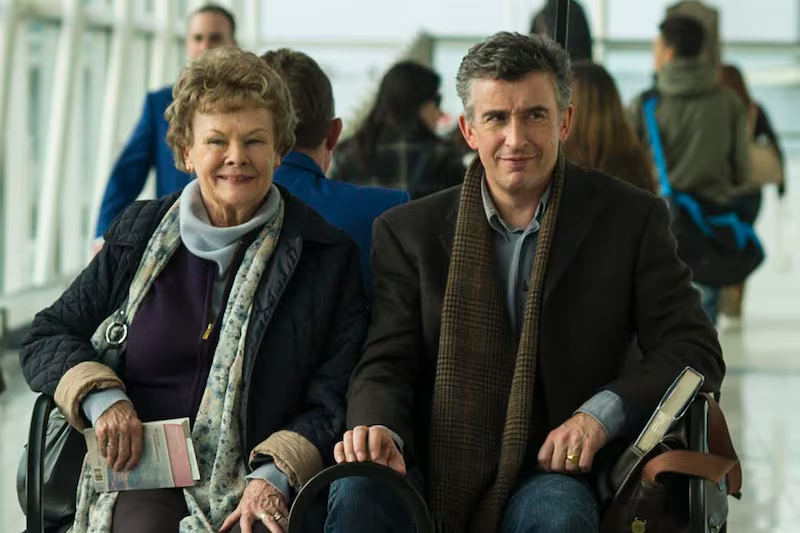
Philomena is the extraordinary story of an extraordinary woman. Philomena Lee was a naive teenager, whose only sin was to get pregnant out of wedlock. “Put away” in a convent by an Irish society dominated by the Catholic Church, she gave birth to a beautiful baby boy. For three years she cared for young Anthony, working all the while in the convent laundries. Then, like thousands of other ‘fallen women’, Philomena was forced to give up her child as a condition of being released from the near slavery she found herself in.
This was the fate of many young mothers with illegitimate children in Ireland. Only very recently has the Irish government apologised for the living hell that was inflicted on them. But Philomena’s tale is special. Martin Sixsmith’s book Philomena, and the film that is based upon it, tells the story of her decades-long search for the son she lost. It depicts the uncertainty, the hope, and the moments of despair. And at the end of it all, it reveals a remarkable human being with astonishing fortitude and a truly humbling willingness to forgive. To me it is astounding that Philomena still has her strong religious belief even after everything that was done to her. She questions things and is very open in speaking about her experiences, but her faith is unshakeable—as strong as it always was.
When I was asked to play the part of Philomena in Stephen Frears’s wonderful film, I thought of my own Irish heritage. My mother was Irish, born in Dublin, and all her family are Irish. My father was born in Dorset, but went to Ireland with his parents when he was three. He grew up in Dublin and studied at Trinity College, as did all my cousins.
Although my mother was brought up a Methodist, she went to a Catholic school and I know she had fond memories of some of the nuns. Recognizing her faith, they excused her from Catholic prayers and very sweetly gave her the job instead of dusting the statues. My mother used to say she had the pleasant duty of keeping the Virgin Mary clean.
So I was pleased that the book and the film do not simplify the issues or paint the Catholic Church in an unremittingly black light. The role of the church is, quite properly, examined, but care has been taken not to caricature what happened. These were different times. The system was a terrible one. But many of the nuns themselves were kind and not all the girls in their care were treated cruelly.
As was the case with most Irish people in the 1950s and ’60s, my family was unaware that this sort of thing was going on in Ireland. But Philomena was far from an isolated case. Innumerable mothers and children were torn apart, and many of them are still looking for each other even now. It is terrible and very, very shocking. So I hope Philomena’s heroic search and her courage in allowing her story to be told will bring comfort to all who have suffered a similar fate.
In making the film, I felt very strongly that I was inhabiting the character of Philomena. It was a great challenge. It was fantastic having Philomena to talk to, to be there as a reference when I needed her. It allowed me to get the essence of the part, in a way that was impossible when I played Elizabeth I or Iris Murdoch, both of whom were long gone.

But there was also the very real responsibility of playing a living person, and that weighed heavily on me. What I wanted more than anything was for the film to do her justice and to do justice to Martin Sixsmith’s book. I have worked with Stephen Frears as a director many, many times and I knew we were in safe hands. He has taken great care to be very true to Philomena’s story, very true to Martin’s book.
It was extraordinary for me to watch some of the scenes we had shot and to have Philomena herself sitting there beside me, with her hand on my shoulder. It was a most rewarding experience. I was extremely aware of her reaction to seeing the film and I watched her very closely when we got to the appearance of the boy actor who plays her lost son. I am so terribly glad to have done it. And I hope Philomena will be just as pleased with what we have made of her life story.
Copyright © Dame Judi Dench 2013. Foreword from Philomena by Martin Sixsmith, with a Foreword by Dame Judi Dench, Published by Pan Books in the UK and Penguin Books in the U.S.






